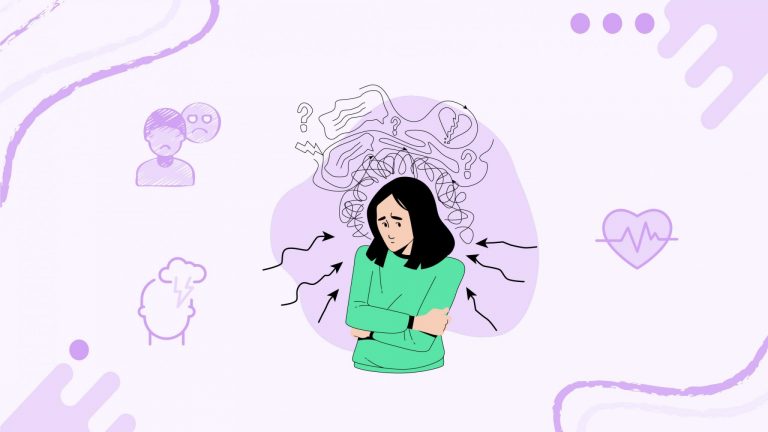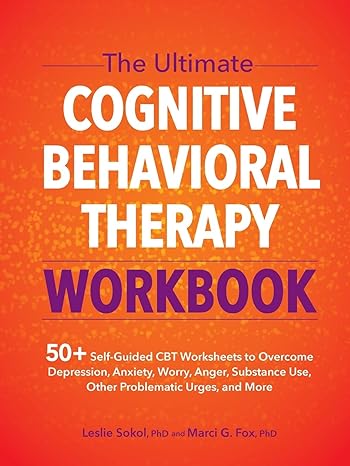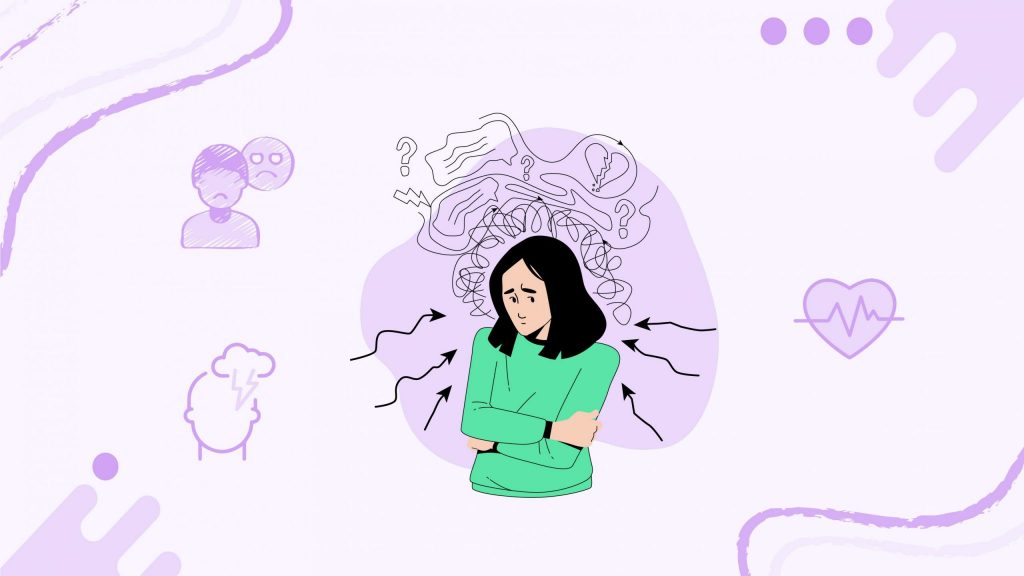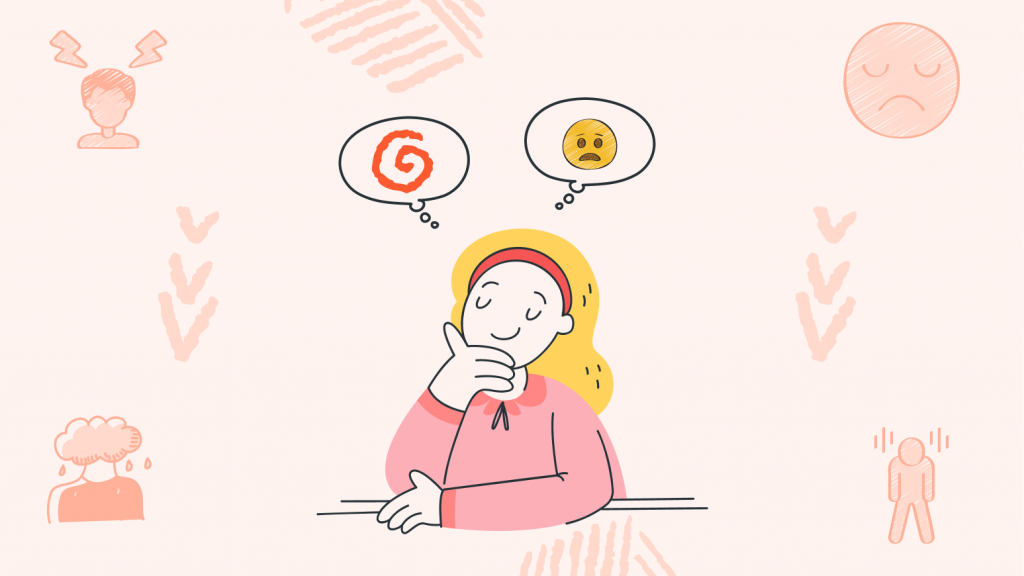Have you ever found yourself in a situation where you notice yourself acting in a fuss? Or worse, creating finicky over matters that don’t even matter? There may be instances where you notice other people playing these patterns, but what’s important is finding ways to calm their nerves.
It is crucial that we understand what makes us slip into anxiety and excessive worry. Or cause a heightened emotional response to trivial matters.
It is categorized as neurotic behavior. Behavior that involves poor response to stress and triggers unsettling negative emotions like anxiety, anger, and depression.
What is Neuroticism?
Neuroticism is a personality trait characterized by anxiety, worry, and emotional instability. Neurotic people are more likely to slip into the negative way of reacting to a situation.
If two people are dropped in a similar situation, the neurotic person is more likely to draw the negative outcome as opposed to the other, who might invest his thoughts in finding the best possible solution to that problem.
How Neurotic Are You?
1. Do you worry about things that are often beyond your control?
a) Yes
b) No
2. Do you often feel nervous and anxious in everyday situations?
a) Yes
b) No
3. Do you struggle in situations that test your stress management skills?
a) Yes
b) No
If most of your answers were ‘Yes,’ the strategies mentioned below will help you find calm and increase your productivity as you implement them in your daily routine.
Negative Effects of Neuroticism
A study published in the Journal of Personality and Social Psychology found that high levels of neuroticism are associated with an increased risk of mental health disorders, including anxiety and depression.
The negative effects of neuroticism include increased levels of stress, anxiety, depression, and sleep disturbances. When we fall victim to neurotic thinking, we curb our chances of becoming happy as we sail through life. It is important that we identify these signs and counter them effectively so that we can enjoy life to the fullest.
Ways to Change Neurotic Thoughts
#1: Practice Mindfulness
Mindfulness is a powerful tool in our hands to reverse neurotic thoughts. When we train our minds to remain in the present moment, we free our minds from having to react in autopilot mode. By practicing mindfulness, we give the mind new stimuli and ways to act and respond in a situation.
When we obsess about things, this clearly indicates that we aren’t regulating our emotions in the right manner. This is where we can make things better by practicing mindfulness and coming to our full awareness. Neurotic thinking is often motivated by ingrained fear and anxiety; therefore, it becomes essential to break our assumptions and rewire our brain responses.
#2: Eat Healthy and Exercise
Eating a healthy diet and following a strict exercise regime are equally important in keeping neuroticism in strict check. When we aren’t meeting our bodies’ nutritional needs and depriving our bodies of the required physical activity, we are already putting our physical and mental health at stake. Proper nutrition helps the body to perform its functions optimally, and regular physical activity helps our mind and body to remain in proper sync. And when it comes to reversing neurotic tendencies, there’s no better way than eating a healthy diet and indulging in regular exercise to ward off negative emotions.
🎭 Fun Fact
Just 30 minutes of moderate exercise, like walking or cycling, can significantly reduce symptoms of anxiety and depression (Source: American Psychological Association).
#3: Change Your Narrative
It’s all about changing our narrative in mind. When we work on the quality of thoughts that run in our heads, we change the actions that come from our minds. Noticing the obsessive thinking and refusing to act in accordance with it is how we can work towards breaking the patterns of neurotic thinking.
It often so happens that we get wired to lead by our anxious thoughts, which always keep us running on our toes. When we try to remain mindful and rewrite our talks, we are making progressive steps to conquer our neurotic thinking. Here, we need to replace our negative feelings with positive ones. For instance, replacing our anxiety with calm and see how it changes the picture on the outside.
#4: Cognitive Behavioural Therapy
Cognitive Behavioral Therapy is a therapy where we consciously focus on the negative patterns and try to reframe them. Reframe them in a way that eases our stress and anxiety levels. It often questions the validity of negative thoughts and beliefs and works towards collecting sufficient proof to rewire them into correct notions.
Say, for instance, If someone has an ingrained belief of failing at a particular task, it works around discarding the ingrained negative belief by questioning its validity. Negative thought patterns and beliefs appear automatic to a particular response and often lack credibility.
For those who are clueless about where to begin, invest in CBT workbooks that are designed to help you through this journey. The guided worksheets will help you overcome stress, anxiety, worry, and anger.
#5: Seek Professional Help
If you are facing severe consequences of neurotic thinking, it’s best to seek professional help in time before it gets worse. The extreme scenario is when anxiety hits so hard that it becomes difficult to perform day-to-day functions. In such cases, it’s best to consult a professional and see if he recommends any medication.
Conclusion
Reducing neurotic thinking begins with recognizing the signs and gradually countering them. Techniques such as mindfulness, cognitive behavioral therapy, regular exercise, and reframing negative thought patterns have proven effective in minimizing the impact of neuroticism. While stress and anxiety are common in everyone’s life, learning to manage them is crucial for living a happier, more balanced life. Stay committed to your journey, and you’ll see changing your thoughts, actions, and life-changing for the better.
FAQ’s
Genetics plays a significant role in making people neurotic, but environmental and life experiences seem to have a more significant role when it comes to neuroticism.
Generally, lifestyle changes are prescribed to deal with neuroticism; however, in some instances, health practitioners may prescribe medications to deal with the symptoms of stress, anxiety, and depression.
Mindfulness and meditation are the natural and effective ways to bring the mind to calm and relieve it of unnecessary stress and tension. However, to see the significant results, it is recommended to practice it for a long tenure.
Yes, exercise is a helpful and practical resort for finding relief from neuroticism. It reduces anxiety and improves mental health.
It is important to offer your loved one the help and support that they ask for. You can understand their concerns and lend them an empathetic ear without being judgemental in your conduct.





















